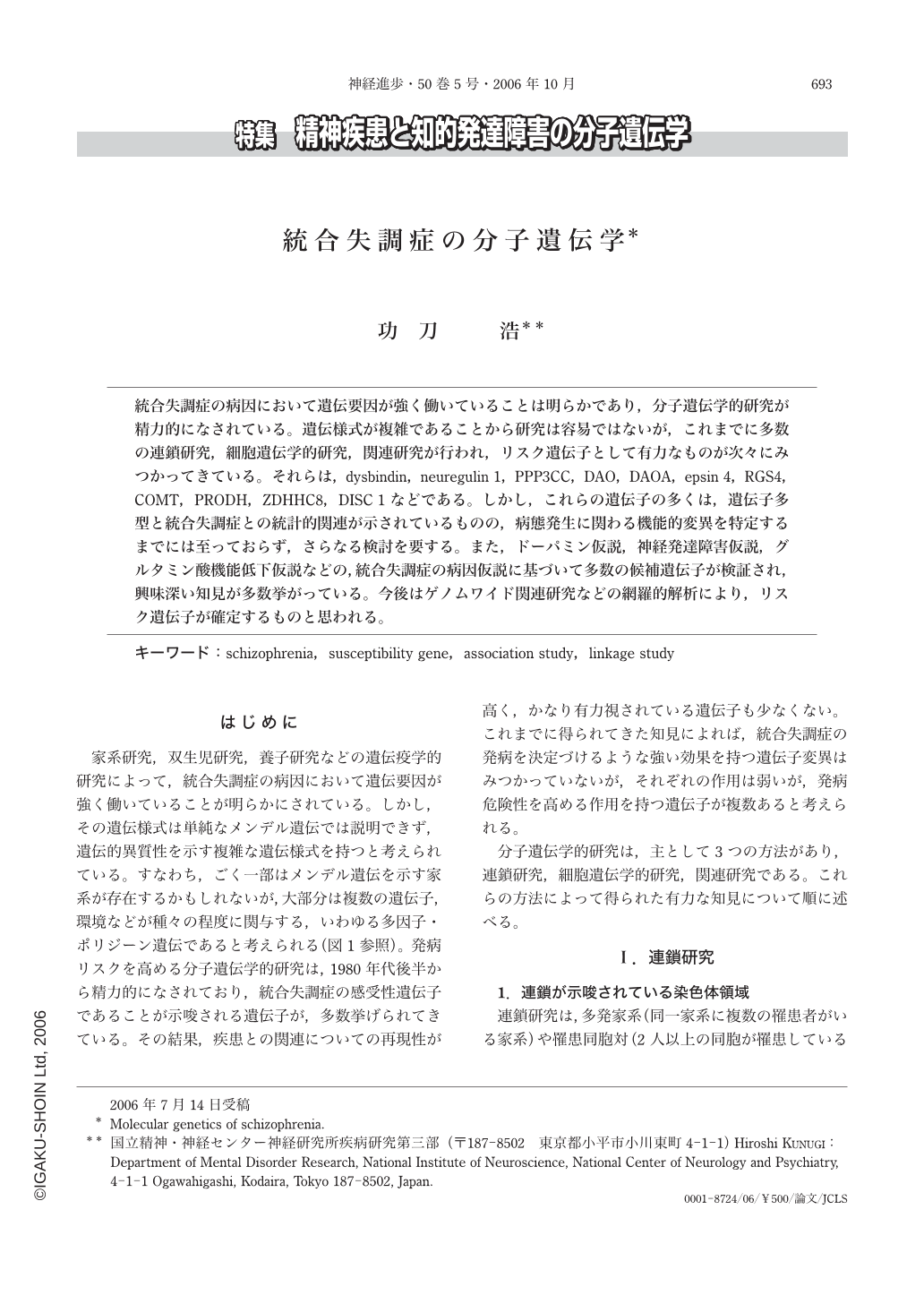Japanese
English
- 有料閲覧
- Abstract 文献概要
- 1ページ目 Look Inside
- 参考文献 Reference
統合失調症の病因において遺伝要因が強く働いていることは明らかであり,分子遺伝学的研究が精力的になされている。遺伝様式が複雑であることから研究は容易ではないが,これまでに多数の連鎖研究,細胞遺伝学的研究,関連研究が行われ,リスク遺伝子として有力なものが次々にみつかってきている。それらは,dysbindin,neuregulin 1,PPP3CC,DAO,DAOA,epsin 4,RGS4,COMT,PRODH,ZDHHC8,DISC 1などである。しかし,これらの遺伝子の多くは,遺伝子多型と統合失調症との統計的関連が示されているものの,病態発生に関わる機能的変異を特定するまでには至っておらず,さらなる検討を要する。また,ドーパミン仮説,神経発達障害仮説,グルタミン酸機能低下仮説などの,統合失調症の病因仮説に基づいて多数の候補遺伝子が検証され,興味深い知見が多数挙がっている。今後はゲノムワイド関連研究などの網羅的解析により,リスク遺伝子が確定するものと思われる。
Genetic factors clearly play an important role in the pathogenesis of schizophrenia, which have prompted numerous molecular genetic studies such as linkage, association, and cytogenetic, studies. Despite difficulties underlying the search of schizophrenia genes, growing number of promising genes have been reported. These include dysbindin, neuregulin 1, PPP3CC, DAO, DAOA, epsin 4, RGS4, COMT, PRODH, ZDHHC8, and DISC 1. Findings of these genes from postmortem brain studies and animal studies as well as molecular genetic studies are reviewed. Since responsible variants have not yet been determined for these genes(except COMT), further studies are required to draw any conclusion as to whether and how each gene gives susceptibility to schizophrenia. Many candidate genes based on dopamine hypothesis, neurodevelopmental hypothesis, and glutamate hypothesis in the etiology of schizophrenia,h ave been tested for association with the disorder, which have given rise to potentially important findings. Genome-wide association studies will eventually determine schizophrenia susceptibility genes in the near future.

Copyright © 2006, Igaku-Shoin Ltd. All rights reserved.


